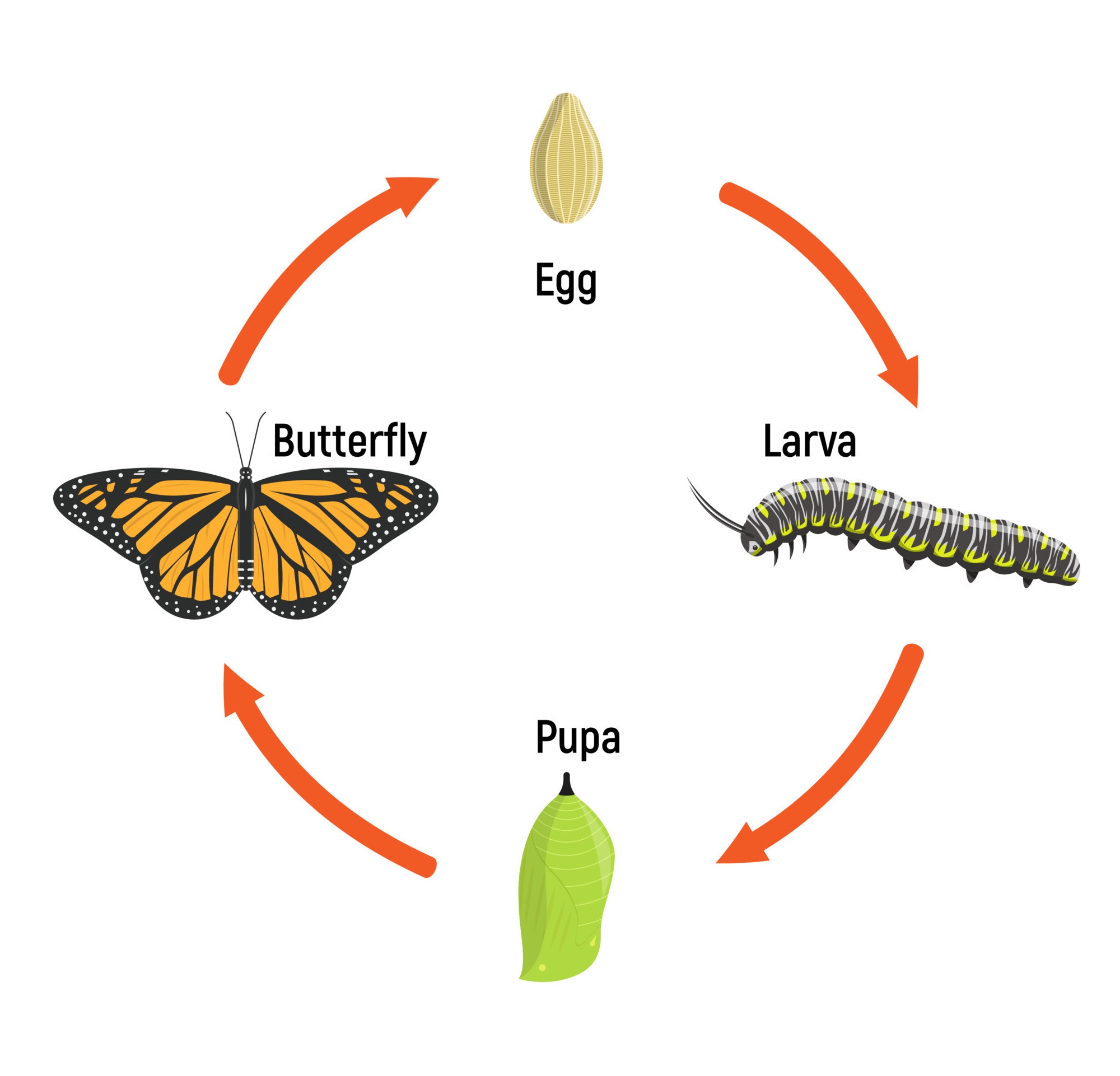
Metamorphosis is a fascinating biological process that occurs in various organisms, bringing about remarkable changes in form and structure. From the captivating transformation of a caterpillar into a butterfly to the complex development of amphibians, the concept of metamorphosis is truly awe-inspiring. In this article, we will delve into 18 intriguing facts about metamorphosis, shedding light on its significance in the natural world and its diverse manifestations across different species. By exploring these facts, we can gain a deeper understanding of the wondrous mechanisms that drive metamorphosis and appreciate the beauty of this phenomenon. So, let's embark on a journey to unravel the mysteries of metamorphosis and uncover the astonishing truths behind this captivating process.
Key Takeaways:
- Metamorphosis is a fascinating process that helps organisms adapt and survive in their environments, showcasing the wonders of nature and the complexity of life.
- From butterflies to grasshoppers, metamorphosis is a captivating journey of transformation, inspiring art, literature, and scientific research while playing a crucial role in agriculture and pest control.
Metamorphosis is a biological process.
Metamorphosis is a fascinating biological process that many organisms undergo during their life cycle.
It occurs in various species.
Metamorphosis is not unique to a single species; it can be observed in a wide range of organisms, including insects, amphibians, and some fish.
Metamorphosis involves distinct stages.
The process of metamorphosis is characterized by distinct stages, often including larval, pupal, and adult phases, each with its unique traits and behaviors.
It is a crucial part of the life cycle.
Metamorphosis plays a critical role in the life cycle of many organisms, enabling them to transition from one developmental stage to another, often facilitating their adaptation to different environments and lifestyles.
Metamorphosis is driven by hormonal changes.
Hormonal changes within the organism trigger the metamorphic process, leading to profound physical and behavioral transformations.
Complete metamorphosis involves four stages.
Insects such as butterflies undergo complete metamorphosis, consisting of the egg, larva, pupa, and adult stages, each serving a specific purpose in the organism’s development.
Some organisms undergo incomplete metamorphosis.
Unlike complete metamorphosis, incomplete metamorphosis involves three stages: egg, nymph, and adult. This process is observed in insects such as grasshoppers and cockroaches.
Metamorphosis can be advantageous for survival.
Through metamorphosis, organisms can adapt to different ecological niches, escape predation, and optimize their reproductive strategies, contributing to their overall survival and success.
It allows for dietary changes.
During metamorphosis, an organism’s dietary preferences may change, often aligning with the nutritional requirements of each developmental stage, thereby supporting healthy growth and development.
Metamorphosis is a subject of scientific research.
Scientists study metamorphosis to gain insights into developmental biology, ecology, and evolutionary processes, contributing to our understanding of how organisms adapt and thrive in diverse environments.
It is a captivating aspect of nature.
Metamorphosis captivates the imagination and curiosity of people of all ages, offering a glimpse into the remarkable transformations that occur in the natural world.
Metamorphosis has inspired art and literature.
Artists and writers have drawn inspiration from the concept of metamorphosis, using it as a metaphor for personal growth, transformation, and the cyclical nature of life.
It is a symbol of change and renewal.
Metamorphosis symbolizes the potential for change and renewal, serving as a powerful symbol in various cultural and spiritual contexts throughout history.
Metamorphosis can be influenced by environmental cues.
External factors such as temperature, photoperiod, and food availability can influence the timing and outcome of metamorphosis in certain organisms, highlighting the intricate interplay between genetics and the environment.
It has implications for agriculture and pest control.
Understanding the metamorphic processes of insect pests can inform agricultural practices and pest control strategies, contributing to sustainable crop management and food security.
Metamorphosis reflects the wonders of adaptation.
The ability of organisms to undergo metamorphosis showcases the remarkable ways in which they have adapted to diverse habitats and ecological challenges over millions of years of evolution.
It is a testament to the complexity of life.
Metamorphosis exemplifies the intricate and wondrous complexity of life, demonstrating the diverse pathways through which living organisms develop and thrive in the natural world.
Metamorphosis continues to intrigue scientists and nature enthusiasts alike.
The phenomenon of metamorphosis remains a captivating and enduring subject of scientific inquiry and public fascination, offering ongoing opportunities for discovery and appreciation of the natural world.
Conclusion
Metamorphosis is a fascinating and intricate process that occurs in various organisms, allowing them to undergo remarkable transformations throughout their life cycles. From the astonishing changes in physical form to the underlying biological mechanisms driving these transitions, the phenomenon of metamorphosis offers a wealth of captivating insights into the natural world. By delving into the diverse examples of metamorphosis and understanding the adaptive advantages it confers, we gain a deeper appreciation for the complexity and beauty of life on Earth. Embracing the wonder of metamorphosis enables us to comprehend the interconnectedness of different species and the remarkable strategies they have evolved to thrive in diverse environments.
FAQs
What organisms undergo metamorphosis?
Metamorphosis is observed in various organisms, including insects, amphibians, marine invertebrates, and some fish species. This process enables them to undergo dramatic physical and physiological changes as they progress through different life stages.
What are the distinct stages of metamorphosis?
The stages of metamorphosis vary among different organisms. In insects, metamorphosis typically involves egg, larva, pupa, and adult stages, while in amphibians, it encompasses the egg, larval (tadpole), metamorphic, and adult stages.
What are the ecological implications of metamorphosis?
Metamorphosis plays a crucial role in ecological systems by influencing the behavior, feeding habits, and interactions of organisms. It also contributes to population dynamics, energy flow, and nutrient cycling within ecosystems.
Metamorphosis is a captivating biological process that has inspired countless minds throughout history. From the surreal world of Franz Kafka's novella to the intricate details of animal development, transformation remains a subject of endless fascination. For those eager to explore more, delve into the absurd universe of Gregor Samsa's metamorphosis, unravel the mysteries of how creatures grow and change, or hop over to our collection of extraordinary frog pond facts. Each article promises a unique perspective on the wonders of metamorphosis and the natural world.
Was this page helpful?
Our commitment to delivering trustworthy and engaging content is at the heart of what we do. Each fact on our site is contributed by real users like you, bringing a wealth of diverse insights and information. To ensure the highest standards of accuracy and reliability, our dedicated editors meticulously review each submission. This process guarantees that the facts we share are not only fascinating but also credible. Trust in our commitment to quality and authenticity as you explore and learn with us.


